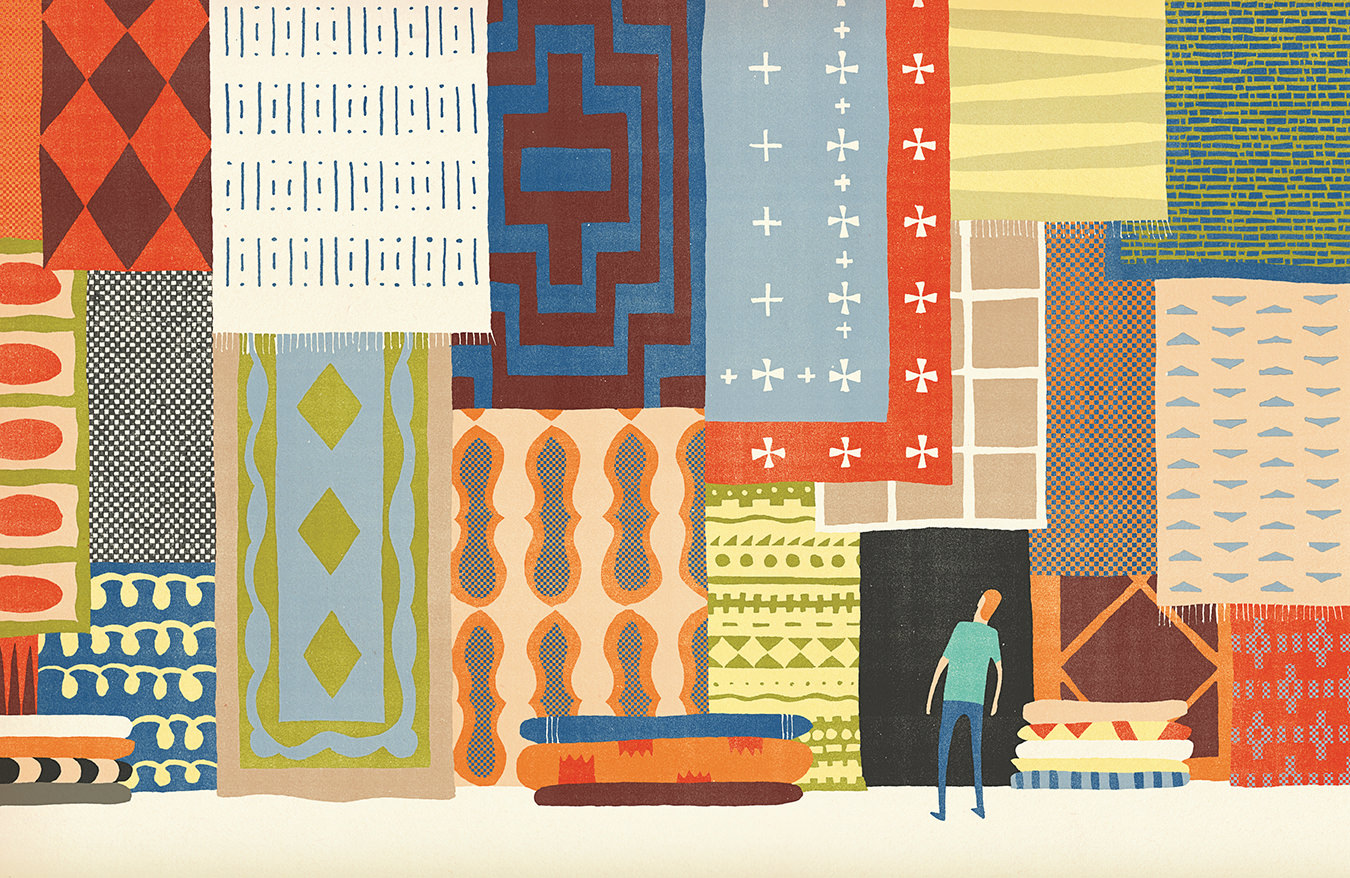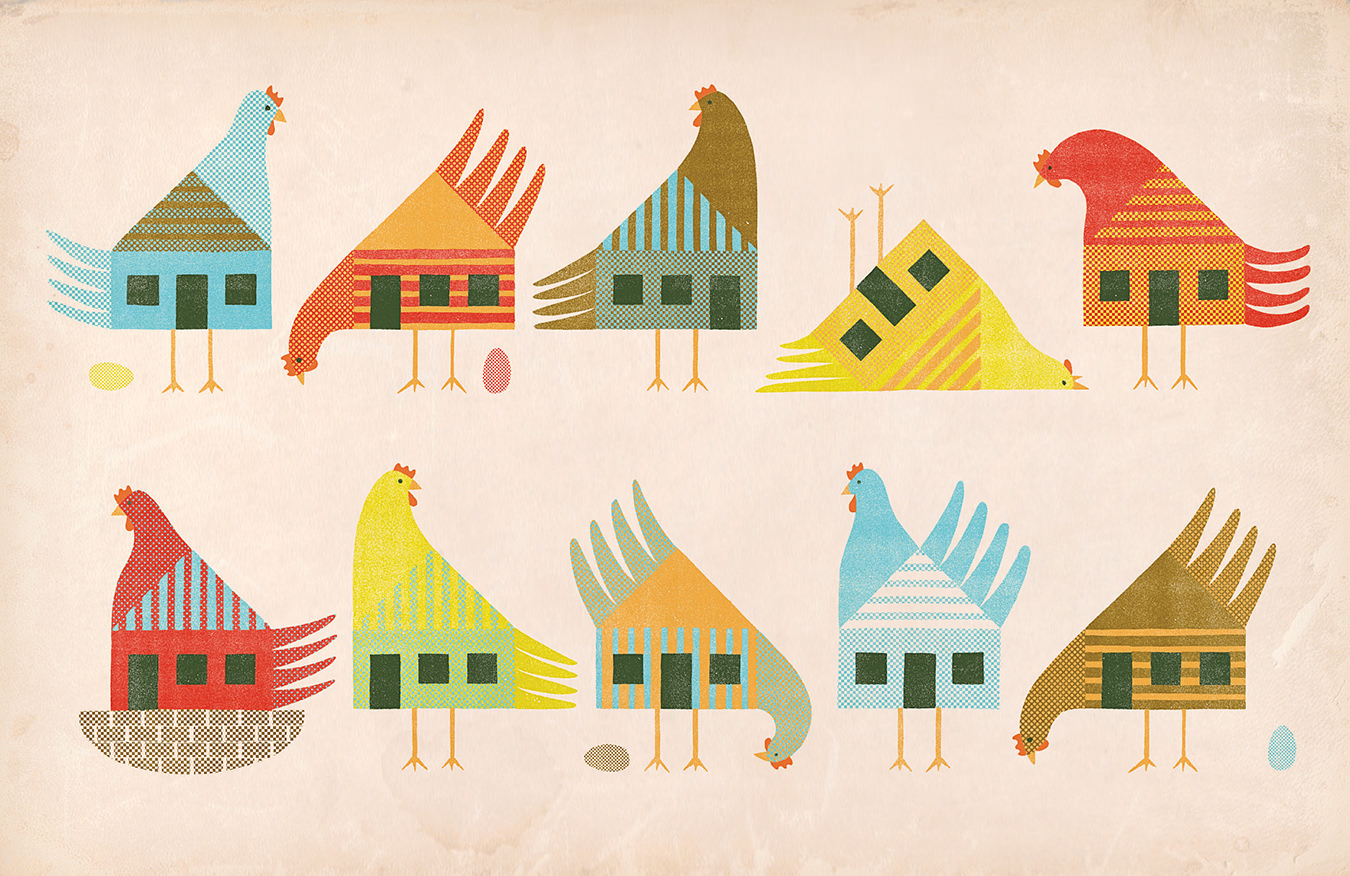The Negotiation of Desire
Shopping isn’t just about facts and figures.

Illustration by Andrew Holder.
It is midday in Marrakesh and the souk is bustling. I have paused to examine a store window when somebody says, “Congratulations, my friend. You have chosen the most beautiful rug in all of Marrakesh.”
I turn to face a man in a saffron-coloured djellaba. “I am Fuad,” he says, “and I am happy to meet a man of such fine taste. Let me wrap it up and we’ll deliver it to your hotel…”
But I am not looking for a rug. That doesn’t matter. “It was fate that led you here. This is not a rug for everyone,” says Fuad, clutching the weaving and looking around, as if to keep a less-deserving buyer from claiming it. “This is a rug for the true connoisseur.”
Whether that is the case or not, it is beyond my price range. But Fuad is not to be deterred. “Forget the price you see here. Just for you, I will subtract 20 per cent.” Alas, that is still higher than my budget would allow, but when I try to leave, he clutches my arm. “All right then,” says Fuad, “how much can you pay?” I lower my eyes to the floor, as confessing how little I can pay will be an insult. He raises his eyebrows, and I cite a figure.
“What?” the merchant erupts, his mouth dropping open. “How can you say how much it is worth when you don’t even know its history, or who made it, or what it means? Come, sit with me and have some tea. I will tell you about the rug and then you can decide how much you will pay for it.” His invitation is most kind, but perhaps some other day. “Tomorrow then,” he says, and bids me goodbye with “inshallah.”
That evening, my friend Mohamed laughs at the tale of my encounter with the rug merchant. “Moroccans will always love to negotiate,” he says. “To the Western mind, the absence of a fixed price suggests the vendor is out to cheat him. But this is not true. It is more a philosophical statement. To us, the fixed price is anathema because it represents a binary mindset—win or lose, all or nothing, take it or leave it. Those are Western ideas.”
Perhaps, but I still wish I knew more about Moroccan weavings. At least then I would know more about what I’m buying. Mohamed, a historian by vocation, continues, “You’re putting too much faith in knowledge. Negotiation isn’t about facts and figures. It’s about desire.”
The next day, Fuad is all smiles when I return to his shop. His assistants lay the rug out on the floor as he gesticulates wildly, explaining the significance of the signs and symbols—good luck and protection from the evil eye are constant themes.
So I buy it. And I am going home not only with a rug, but with a souvenir of the experience.



